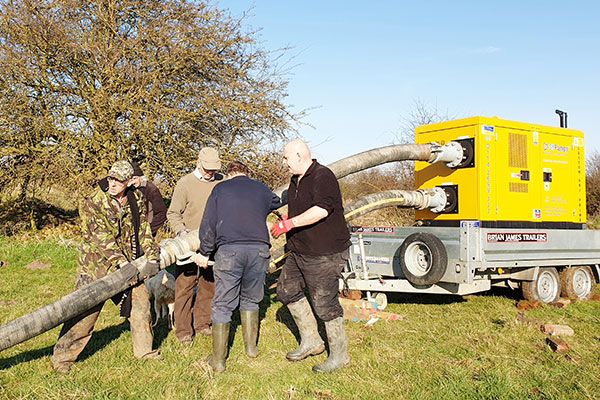Our work
The BASC Wildlife Fund offers financial support to shoots, clubs and syndicates for hands-on conservation initiatives and sustainable land management.
Thanks to your donations, we can provide funding for land purchase and conservation projects in the UK. We are also involved in international projects where these relate to UK migratory species.
Since January 2020, we have awarded more than £500,000 in grants for a range of projects. You can find some of these below.
Black grouse range expansion project
A grant of £52,405 was awarded to help restore Scotland’s capercaillie population in its last remaining stronghold in the Cairngorms National Park.
There are now only 542 capercaillie left in the UK and more than 80 per cent live in the Cairngorms, the lowest recorded number for 30 years. Recent modelling by the Game and Wildlife Conservation Trust (GWCT) suggests that following this project, capercaillie numbers in the Cairngorms could be 16 per cent higher and the risk of extinction within 50 years would drop by 92 per cent.
The BWF grant given to the emergency action for capercaillie project in 2023 will fund work to mark or remove 10km unmarked fences sited in the Badenoch and Strathspey area which, left as they are, present a significant risk to resident capercaillie.
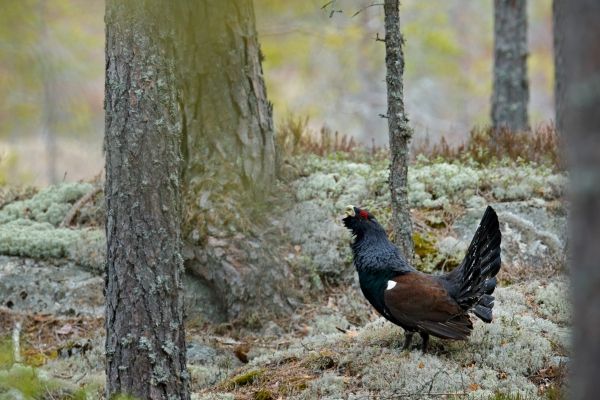
Emergency action for capercaillie
A grant of £52,405 was awarded to help restore Scotland’s capercaillie population in its last remaining stronghold in the Cairngorms National Park.
There are now only 542 capercaillie left in the UK and more than 80 per cent live in the Cairngorms, the lowest recorded number for 30 years. Recent modelling by the Game and Wildlife Conservation Trust (GWCT) suggests that following this project, capercaillie numbers in the Cairngorms could be 16 per cent higher and the risk of extinction within 50 years would drop by 92 per cent.
The BWF grant given to the emergency action for capercaillie project in 2023 will fund work to mark or remove 10km unmarked fences sited in the Badenoch and Strathspey area which, left as they are, present a significant risk to resident capercaillie.

Wentloog Wildfowling and Conservation Association
ln February 2024, it was announced that a BWF loan £35,000 has been agreed to allow Wentloog Wildfowling and Conservation Association (WWCA) to purchase 932 acres of foreshore in Wentloog, a rural community in the southwest of the city of Newport.
Wentloog’s foreshore comprises intertidal flats which fall within the Severn Estuary protected network – an area of vital importance to the wetland and migratory wildfowl in the region. The Gwent Wildlife Trust is a neighbouring landowner.
With the support of BASC and the BWF, the WWCA will commence a habitat management plan for the site, which will give them a strong voice and, as the owner of the land, a mandate to protect and preserve the habitat.
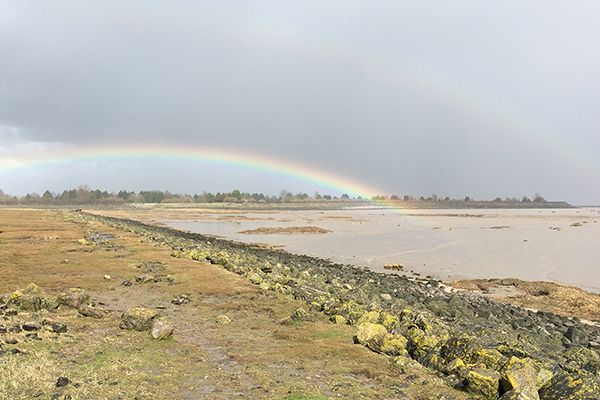
SOTKA wetlands project – Finland
In 2023 grant of €45,000 was awarded to the SOTKA wetlands project in Finland, to restore and create three wetland sites, spanning 47 hectares, to benefit a wide range of wildlife, not least a host of wildfowl species that migrate to the UK each autumn.
SOTKA wetlands, a Finnish Wildlife Agency project, has a goal of creating 40 wetland sites by 2025. The funding will be used to build dams and dykes in order to hold spring flood waters for the benefit of breeding wildfowl and it is hoped this project will prepare the ground for further innovative, international multi-stakeholder partnerships.
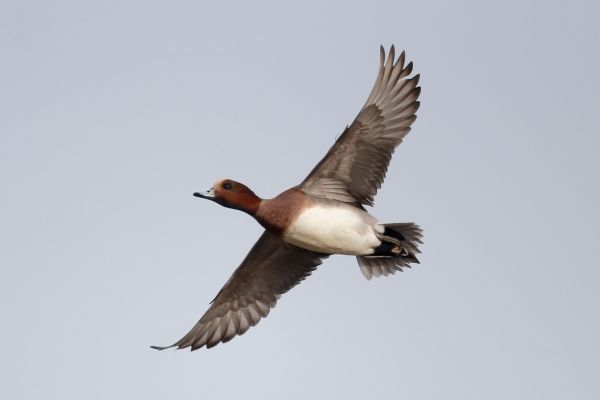
Combatting the curlew crisis
Wildfowl and Wetlands Trust (WWT) received a grant of £75,000 for its Combatting the Curlew Crisis project, run over three years (2020 to 2022).
The grant has been used to fund habitat improvement and head-starting for the curlew breeding recovery project in the Severn and Avon vales.
Seeking to increase the population of breeding curlew from a baseline of 36 pairs in 2019 to 50 pairs by 2023, the project provides a model for other local conservation efforts for curlew and their habitats in lowland areas of southern Britain.
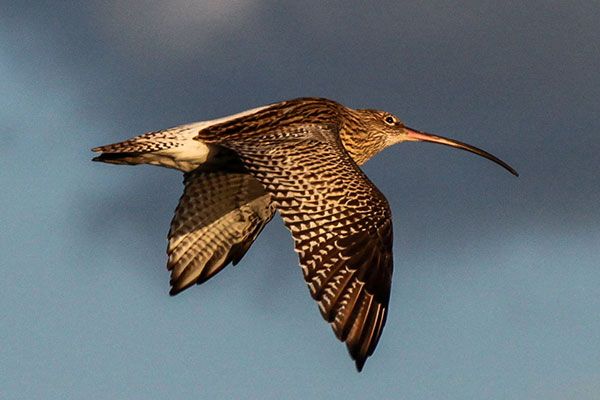
Hen harrier brood management
In 2013, no hen harrier chicks fledged in England. However, since 2016, collaboration under the Defra Hen Harrier Recovery Plan between gamekeepers, Moorland Association members, other moorland stakeholders and Natural England has led to five consecutive record-breaking years.
During summer 2023, 141 hen harrier chicks fledged from 54 nesting attempts in England. There are now more hen harriers in England than at any point in the last 200 years.
The BWF grant of £25,000 (which brings the total awarded to the project to £125,000 since 2020) will extend the trial and allow exploration of whether brood-managed hen harriers can breed in the wild long-term, and whether the wider population increase is due to brood management.
The project has yielded some outstanding results. Read more about the scheme here.
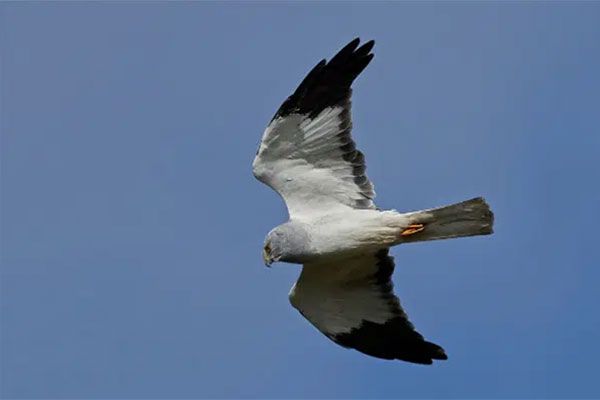
Hen harriers at Swinton Estate
Swinton Estate was awarded a grant of £4,800 for the purchase and installation of camera equipment to record and monitor nesting hen harriers.
Providing valuable information to aid research into hen harrier ecology, the cameras transmit a live feed to give the public access to previously unseen footage of these majestic birds.
Watch some of the 2022 footage from the nest camera by clicking on the film.
Project Penelope
The Waterfowlers’ Network was awarded a grant of £50,170 for Project Penelope, which tracks Eurasian wigeon through their annual migration cycle to support effective conservation efforts.
Running from spring 2021 – 2024, Project Penelope aims to better understand the winter movements, flyway paths and breeding sites of Eurasian wigeon, which in turn will inform sustainable shooting of this species.
The project saw 4,000 wigeon ringed, with 102 fitted with GPS-GSM trackers. Having been monitored from their wintering grounds in the UK, Project Penelope sees UK teams working collaboratively with researchers in Denmark and Finland to track wigeon across the eastern flyway. The project is endorsed by FACE and Defra.
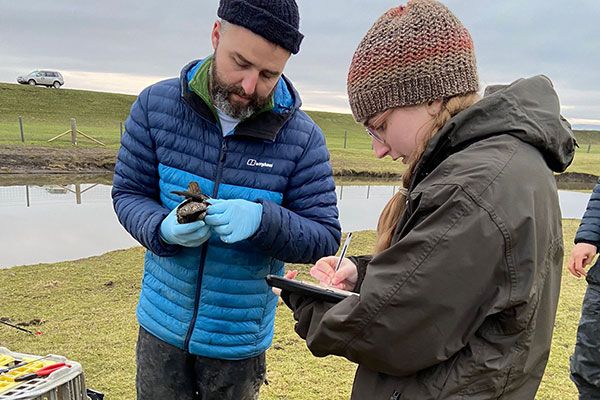
Wetlands at Poulton Court
Gloucestershire Wildfowling and Conservation Association received a grant of £23,913 for the creation of wetland habitat at Poulton Court on the Severn Estuary.
The grant was awarded to fund the creation of new wetland ponds and scrapes for breeding and overwintering waders and waterfowl at Poulton.
Learn more about the project by clicking on the film link.
Boa Island recovery project
Lough Erne Wildfowling Council were awarded 25,000 (£5,000 per annum until 2024) for the 2020-2024 Boa Island Wader Recovery Project.
The project primarily aims increase the breeding success of threatened waders in Northern Ireland (curlew, lapwing and redshank, and amber-listed snipe) at key sites across Boa Island, Lower Lough Erne.
Contributing towards several initiatives, the grant has funded aspects such as habitat improvement – including sward management and scrub clearance – predator control, education of farmers, wildfowlers and the public, and the annual ornithological monitoring of the impact of the project on breeding wader populations.
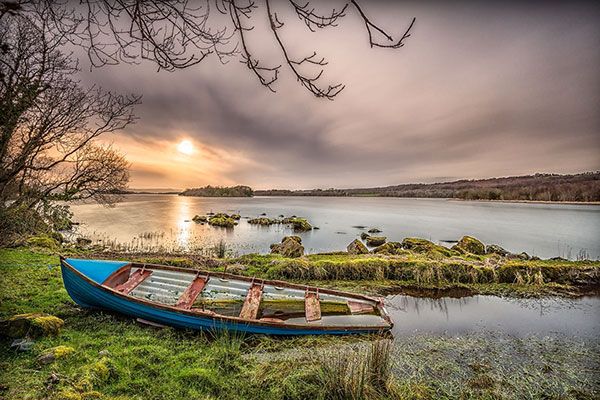
Habitat creation at Hutton Marsh
Preston and District Wildfowling Association secured a grant of £21,288 for a habitat creation project at Hutton Marsh.
Funding habitat improvement for both ground and non-ground nesting birds, the project also supported habitat creation for overwintering wildfowl, water voles and otters within Hutton Marsh.
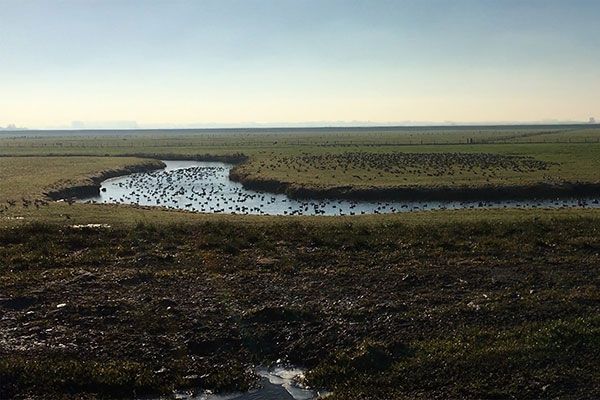
Wetland creation on the Humber
Barton-on-Humber Wildfowlers were awarded a grant of £35,790 to assist with the creation of wetlands areas over 28 acres at Horkstow, Barton-on-Humber.
The project created new and additional wetland and ponds from existing grassland, enhancing the club’s north and south wetland purchased in 2017.
The club created common wetland water level areas throughout the land, providing an ideal habitat for wildfowl, waterfowl and waders, along with a host of other bird and mammal life.
